The Telecaster, with its iconic design and rich history, has been a staple in the world of electric guitars since its inception. From Country to Rock, its versatility has been proven time and again. But a question that often arises among guitar enthusiasts and jazz lovers alike is: “Is A Telecaster Good For Jazz?” Let’s delve into this intriguing question!
You can use the table of contents below to take you to the area that interests you. Click on the little box to open it and then click on the section of the article you want to read, or you can read from start to finish if you want the full Jazz Telecaster experience!
The Short Answer
The Telecaster’s unique tonal qualities and adaptability make it more than capable of delivering the intricate and soulful sounds associated with Jazz. Over the years, many jazz guitarists have embraced the Telecaster, drawn to its clear articulation, versatility, and the unique character it brings to jazz compositions. In the hands of a skilled player and with the right setup, the Telecaster can indeed be a formidable jazz instrument.
Keep On Reading (Below) To Learn More
The Telecaster’s Design And Sound Profile

Unique Design Features
The Telecaster boasts a single-cutaway body shape, a distinctive headstock, and typically two single-coil pickups. Its design has remained relatively consistent over the years, making it one of the most recognizable guitars in the world.
The most common modification involves replacing one or both single-coil pickups with a humbucker (double-coil) design to make the sound richer and hotter.
Sound Characteristics
The Telecaster is known for its bright and twangy tones, which can be both sharp and clear or mellow and rounded, depending on the player’s preference.
The wood and build of the Telecaster play a significant role in its sound, with many players praising its resonance and sustain.
Additionally, its tone and volume controls offer versatility in sound adjustments, catering to a wide range of musical genres.
Jazz Music And Its Demands On A Guitar
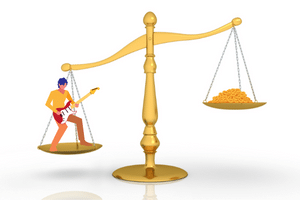
The Essence Of Jazz Tone
Jazz, with its intricate melodies and harmonies, demands a guitar tone that embodies warmth, clarity, and fullness. Clean, articulate notes and rich chords are paramount, as is the role of sustain and resonance. Traditional jazz settings often lean towards a smooth, mellow tone, which can be a challenge and an opportunity for Telecaster players.
Guitars Commonly Used In Jazz
Historically, jazz guitarists have gravitated towards archtops and hollow bodies. These guitars, with their deep resonance and warm tones, have set the standard for what many consider the “jazz sound.” However, the Telecaster, with its unique tonal palette, has found its niche among some jazz players.
My Take On Telecasters In Jazz
I played in the house band for a Jazz Club in Rome, Italy, back in the 1980s. During that time, I mostly used a Gibson ES-335, a Les Paul Standard, and a Standard Telecaster. These guitars allowed me to cover everything from Jazz standards to Jazz Fusion.
I have to say that the Telecaster really surprised me with how flexible it was in a Jazz environment! With a good tube amp, compressor pedal, and a graphic EQ, it filled the gap nicely between the ES-335 and the Les Paul.
I could have easily used the Tele without pedals and left my other two guitars home. That’s how versatile it is!
Advantages Of Using A Telecaster For Jazz
Versatility In Tone Shaping
The Telecaster’s range of tones, from bright and twangy to warm and mellow, allows it to fit into various jazz sub-genres. With the right adjustments, it can produce sounds that rival traditional jazz guitars.
On the other hand, the Telecaster has lots of natural sustain and its own unmistakable sound that can add edginess to a guitar solo and cut through the mix!
Comfort And Playability
The Telecaster’s design, particularly its ergonomic shape, makes it comfortable for extended play. Its easy access to higher frets is a boon for jazz solos that often venture into higher registers.
Durability And Reliability
Known as a “workhorse” guitar, the Telecaster is built for the rigors of touring and frequent gigs. Its solid construction ensures it can withstand the test of time, making it a reliable choice for serious musicians.
Potential Limitations And Considerations
Sound Limitations
While the Telecaster is versatile, achieving the classic jazz tone might require some tweaks. Its inherent brightness might not always align with the mellow tones often associated with jazz.
Modifications And Upgrades
For those seeking a warmer tone, pickup replacements can be considered. Adjusting the tone controls on the guitar and amp and using external equipment, like a graphic equalizer, can further shape the sound to fit a jazz context.
Aesthetic Considerations
In some traditional jazz circles, the look of the guitar can be as important as the sound. The Telecaster’s solid-body, electric design might not fit the aesthetic of certain jazz ensembles that lean towards a more classic image with hollow-body or archtop guitars.
Comparing Telecaster Models For Jazz


| Telecaster Model | Pros | Cons |
|---|---|---|
| Standard Telecaster | – Classic bright and twangy tone – Versatile for various Jazz sub-genres – Affordable and widely available | – Might require pickup upgrades for warmer tones – Limited tonal variations compared to higher-end models |
| Telecaster Deluxe | – Features humbucking pickups for a warmer tone – More tonal options with additional controls – Wider neck suitable for Jazz chord voicings | – Heavier body might not be comfortable for all players – Pricier than the standard model |
| Telecaster Thinline | – Semi-hollow body offers a warmer, more resonant tone – Lighter weight for comfort | – Might feedback at higher volumes due to the semi-hollow design – Not as bright as solid body Telecasters |
| American Professional Telecaster | – High-quality pickups suitable for Jazz – Improved hardware for better sustain and resonance – Refined neck profile for playability | – Premium price point – Might be over-spec’d for beginners or hobbyists |
| Telecaster Custom | – Combination of single-coil and humbucking pickups offers tonal versatility – Classic design with modern upgrades | – Might require some tweaking to dial in the perfect Jazz tone – Slightly pricier due to custom features |
Telecaster Pickups And Their Suitability For Jazz

| Pickup Type | Tonal Characteristics | Suitability For Jazz | Notes |
|---|---|---|---|
| Single-Coil (Standard) | – Bright and clear – Sharp attack – Twangy | Moderate | While traditional for Telecasters, might require tone adjustments for a warmer Jazz sound. |
| Noiseless Pickups | – Similar to single-coils but without the hum – Clear and bright | Moderate to High | Good for Jazz players who want the single-coil sound without the noise. |
| Humbucker | – Warm and full – Reduced noise and hum – Rounded tones | High | Ideal for Jazz due to its warm and noise-free sound. Often found on Telecaster Deluxe models. |
| P-90 | – Blend of single-coil clarity and humbucker warmth – Slightly gritty | High | Offers a unique tonal balance that can be great for Jazz with a bit of edge. |
| Wide Range Humbucker | – Clear highs with deep lows – Broad frequency response | High | Designed for Telecaster Customs, they offer a versatile sound palette suitable for Jazz. |
Famous Jazz Guitarists Who Use Telecasters
Over the years, several notable jazz guitarists have chosen the Telecaster as their instrument of choice. These players have not only showcased the Telecaster’s capabilities in a jazz setting but have also contributed significantly to the genre.
Their stories and music provide valuable insights into the Telecaster’s place in the world of jazz.
Ted Greene
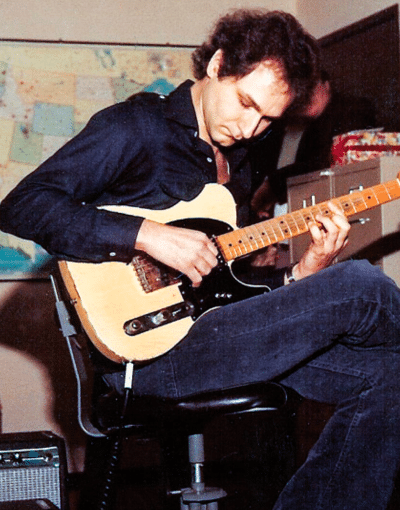
Description: Ted Greene was an American jazz guitarist known for his deep understanding of harmony and ability to play intricate chord melodies. He authored several instructional books that are considered essential reading for aspiring jazz guitarists. I studied his “Chord Chemistry” book for years!
Playing Style: Greene’s style was characterized by his rich chord voicings and melodic interpretations. He achieved a clear and articulate sound using the Telecaster, making every note and chord resonate beautifully.
Ed Bickert
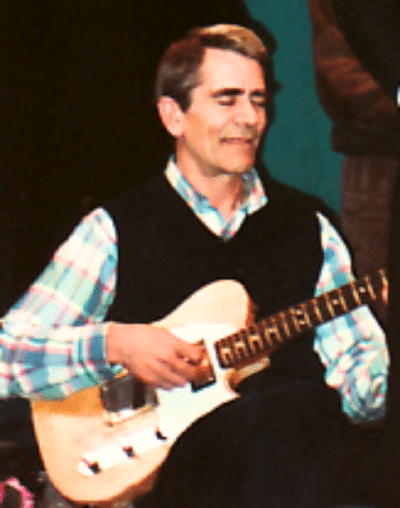
Description: A Canadian jazz icon, Ed Bickert gained international recognition in the jazz community for his sophisticated playing. His work with Paul Desmond in the 1970s is particularly noteworthy.
Playing Style: Bickert’s approach was understated yet intricate. He had a knack for creating smooth, flowing lines on his Telecaster, blending single-note runs with complex chords, all while maintaining a warm and mellow tone.
Mike Stern
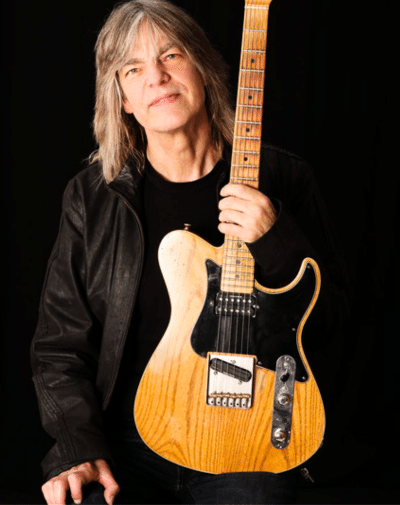
Description: Mike Stern, a fusion guitarist, has played with legends like Miles Davis and Jaco Pastorius. While he ventures into rock and blues territories, his grounding in jazz is undeniable.
Playing Style: Stern’s playing is energetic and versatile. On his Telecaster, he moves seamlessly between fluid bebop lines, bluesy bends, and rock-infused riffs, always with a distinctive tone that cuts through any ensemble.
Bill Frisell
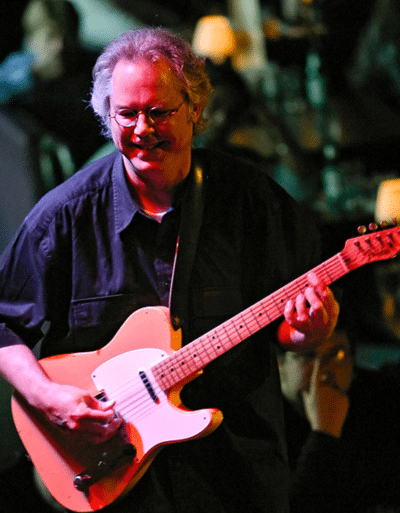
Description: An innovative player, Bill Frisell’s music spans a range of genres, from jazz and blues to country. His eclectic approach has made him one of the most sought-after guitarists in the contemporary jazz scene.
Playing Style: Frisell’s style is atmospheric and expressive. Using a Telecaster, often with various effects, he crafts soundscapes that can be haunting, playful, or introspective, always with a deep sense of musicality.
Julian Lage

Description: A prodigious talent, Julian Lage has been on the jazz radar since childhood. Over the years, he has developed into a formidable player with a fresh and modern approach to jazz guitar.
Playing Style: Lage’s playing is both technically impressive and emotionally resonant. On his Telecaster, he combines elements of traditional Jazz with Folk, Classical, and even Rock influences, resulting in a sound that’s uniquely his own.
Key Takeaways

Here are the main things you should take away from this article.
- The Telecaster, traditionally associated with Country and Rock, has proven its versatility in Jazz, offering a unique tonal palette suitable for the genre.
- Different Telecaster models and pickup types offer varied tonal characteristics, allowing players to choose based on their jazz preferences.
- With the right setup and modifications, the Telecaster can achieve the warm, mellow tones often associated with jazz, making it a viable choice for jazz guitarists.
- Renowned Jazz guitarists like Ted Greene, Ed Bickert, and Mike Stern have showcased the Telecaster’s capabilities in a jazz setting, proving its worth in the genre.
Are You Qualified To Make Guitar Adjustments Or Modifications?
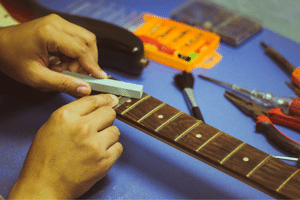
It’s great to work on your guitars, especially if you have a lot of them, but you should always be aware of your limitations.
Adjusting things like an electric guitar’s string height (action) or pickup height can be straightforward. Still, some adjustments require the proper training and experience, like adjusting a guitar’s truss rod.
When you doubt your ability to adjust, repair, or modify your guitar, it’s always best to bring it to a competent guitar technician or luthier (guitar designer & builder). You can permanently damage your guitar, and it might never play and sound right again!
Making modifications to your guitar can void its manufacturer’s warranty and cause permanent damage to the instrument. Certain modifications are irreversible, so you may be stuck with them, even if you desperately want to restore the guitar to its original condition!
I learned that the hard way over the years until I did a three-year apprenticeship in a guitar repair shop. Now I have my own home workshop with the proper training and equipment to safely maintain and repair all my instruments.
Remember: “When In Doubt, Send It Out!”
Frequently Asked Questions

Here are some of the questions I get asked about Telecasters and Jazz.
If your question does not appear here, please put it in the comments, and I will get right back to you with an answer.
What Is Jazz Tone?
Jazz tone, as it pertains to guitar, is often characterized by a warm, clean, and articulate sound, with an emphasis on lower and mid-range frequencies. It’s typically free from distortion, allowing each note in complex chords or fast runs to be heard clearly.
The tone is often described as smooth or mellow, responding well to a wide range of dynamics, from soft to loud. Sustain, or the ability for a note to ring out before it fades, is also a key component.
What Amp Is Best For Jazz?
Choosing the best amplifier for jazz guitar depends on various factors, but some models are often recommended due to their clean sound, warm tone, and good headroom.
These include the Fender Deluxe Reverb, a tube amp known for its warm, clean tone; the Roland Jazz Chorus, a solid-state amp designed specifically for jazz; the Polytone Mini-Brute, a compact solid-state amp popular for its warm tone and portability.
Are Telecasters Uncomfortable To Play?
The comfort of playing a Telecaster, like any guitar, can be quite subjective and depends on a variety of factors, including the player’s physical characteristics, playing style, and personal preferences.
Unlike Stratocasters, standard Telecasters don’t have body contouring on the back and front of the guitar. Some players might find the slab body less comfortable over long playing periods.
How Does The Telecaster Compare To Traditional Hollow-Body Jazz Guitars?
While hollow-body guitars offer a naturally warm and resonant tone ideal for jazz, the Telecaster provides clarity, articulation, and versatility. With the right setup, a Telecaster can come close to the classic jazz tones while offering its unique character.
How Important Are The Pickups In A Telecaster For Jazz?
Pickups play a crucial role in shaping the guitar’s tone. For jazz, many players prefer humbuckers or noiseless pickups for a warmer, hum-free sound, though single coils can also be adjusted for jazz tones.
Do String Choices Affect The Telecaster’s Sound For Jazz?
Yes, jazz guitarists often opt for flat-wound or half-round strings, which produce a smoother, less bright sound compared to regular round-wound strings.
Are There Specific Telecaster Finishes Or Woods That Are Better For Jazz?
The choice of finish is more about personal aesthetics and slight tonal preferences. However, woods, like rosewood for the fretboard, can add a touch of warmth to the sound.
Can The Telecaster Handle Complex Jazz Chord Voicings?
Absolutely. The Telecaster’s clear tonal output ensures that even complex chords are articulated distinctly, making it suitable for intricate jazz voicings.
Final Thoughts

In answering the question, “Is A Telecaster Good For Jazz?” we’ve delved into technical considerations, artist preferences, and the very essence of jazz music. This guitar can really swing in the jazz world, offering a buffet of tonal flavors for jazz musicians to feast on.
The Tele has been dipping its toes into the jazz pool, and guess what? It’s making quite a splash! Jazz is all about soul, emotion, and some serious technical chops, and the Telecaster, with its unique sound and versatility, is stepping up to the plate.
While the Telecaster may not replace the traditional jazz guitars, it undoubtedly carves its niche, proving that it can be a valuable asset to any jazz ensemble with the right approach.
And let’s not forget about the jazz maestros who’ve chosen the Telecaster – talk about a testament to tradition and innovation jamming together!
For those on the fence about using a Telecaster for jazz, the invitation is clear: embrace the instrument’s versatility, explore its potential, and let it be a conduit for your musical expression in the vast and vibrant world of jazz.

Here’s an incredible video of Julian Lage playing “Persian Rug” on a Telecaster live in Los Angeles! Check the Les Paul-type licks he tastefully throws in here and there. His Tele really cuts throw the mix and is on the verge of breakup when he digs in with the pick.
Check it out! ?
Related Article ➡ Is A Telecaster Good For Blues? – A Match Made In Heaven?
What To Read Next ➡ What Genre Is A Telecaster Good For? (It’s Not Just Country)
Tell Me What You Think
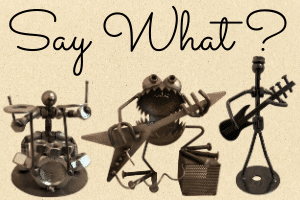
Please leave a comment below if you enjoyed this article, have any questions about Telecasters in Jazz, or want to give your point of view. I will be happy to help you.
- What is your favorite jazz guitar? Why?
- Now that you’ve read this article, can you use your guitar to play Jazz?
- Who is your favorite jazz guitar player?
- What else is on your mind?



Jazz is an old wine and gold for me, I know a few things about jazz artists and an article like this one teaches me and helps me understand a lot of things, a very informative article on Telecasters and their use. Bill Frisell and John Scofield have played them. Jim Mullen used to, not so much now. Ted Greene of course. Usually noted for its great weight for rock, country, and blues, it is also regarded for its popularity with the style of jazz which not many players seem to know. The reason that Jazz players favour the Telecaster as their go-to Fender guitar, comes down to its sound, design, construction, and versatility.thank you for share this 🙂
Hi, Aida
I truly appreciate your comments!
You’re obviously very knowledgeable about Jazz. So happy you enjoyed the article. 😎
Rock On! 🤘
Frank 🎸
This article is a treasure trove of information for anyone considering using a Telecaster for jazz! I’m fascinated by the way you’ve delved into the various aspects of the Telecaster’s design and sound characteristics, especially how its bright and twangy tones can be adapted to fit the demands of jazz music. Your insights into the different models and pickups, along with their pros and cons for achieving that classic jazz tone, are truly enlightening. It’s also inspiring to read about renowned jazz guitarists who have embraced the Telecaster and made their mark on the genre. I’m not a jazz guitarist myself, but your detailed breakdown has given me a newfound appreciation for the Telecaster’s potential in the jazz world. Thanks for sharing such a well-researched and comprehensive perspective!
Hi, Jason
You’re welcome, and Thank You for your kind comments!
The Telecaster is one of the most versatile guitars ever made.
Rock On! 🤘
Frank 🎸